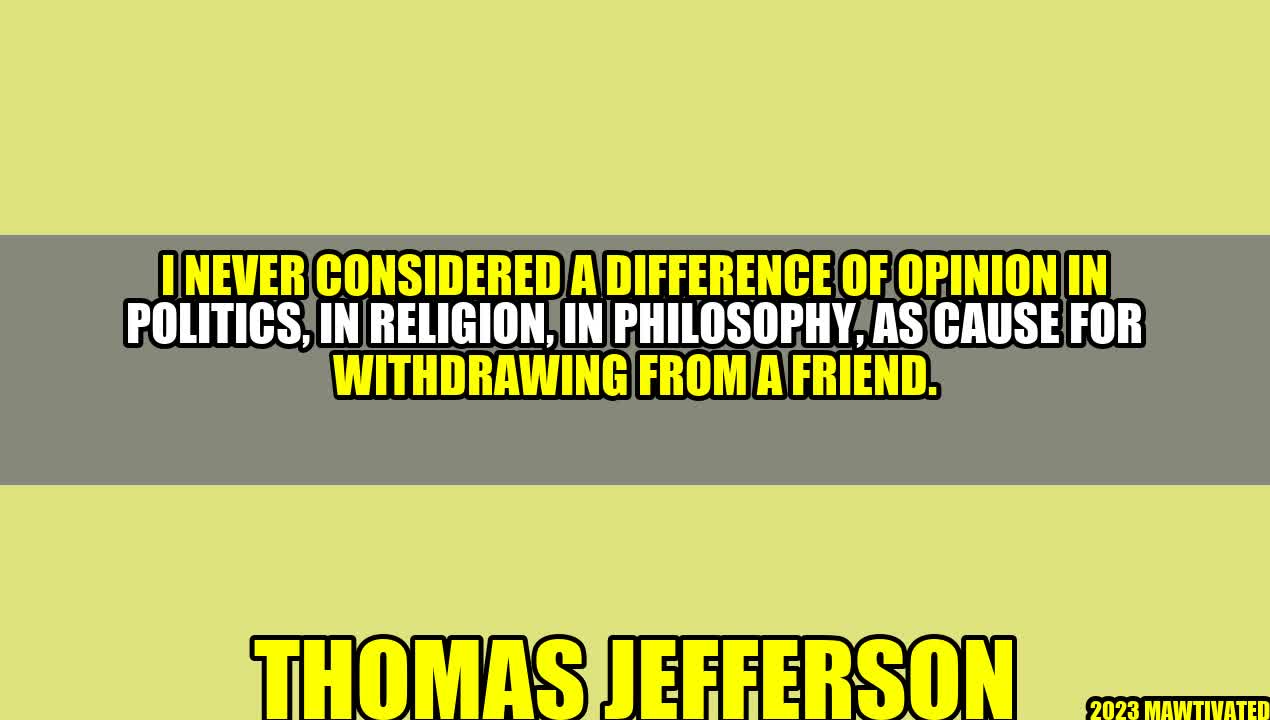Friendship Beyond Differences

An Inspiring Story
There once lived two best friends, John and Michael. They had been inseparable since childhood and went to the same school, shared the same hobbies, and even had the same taste in music. However, as they got older, their political views began to differ. John was a liberal while Michael was a conservative.
Despite their differences, they chose to remain friends. John was still the first person Michael would go to when he needed advice, and Michael was still the first person John would ask to hang out with. They realized that their beliefs did not define their friendship.
Their friendship continued to grow as they learned to appreciate each other’s opinions. Their conversations became more nuanced and thoughtful. They discovered that their friendship was deeper than mere agreement or disagreement on certain topics.
Thomas Jefferson Background
Thomas Jefferson was one of the founding fathers of the United States. He is known for his role in drafting the Declaration of Independence, advocating for religious freedom, and being an advocate for education. But what many don’t know is that he was also known for his ability to maintain friendships despite political and philosophical differences.
Jefferson was known to be a passionate advocate for his beliefs. However, he never let those beliefs come between his friendships. He believed that differing opinions could still coexist and that it was important to engage in civil discourse. His letters to John Adams, his friend and political rival, is a testament to his belief in the power of friendship beyond differences.
Examples of Friendship Beyond Differences
- Nelson Mandela and FW de Klerk – Although they were on opposite sides of the apartheid movement, they were able to work together to bring about an end to segregation in South Africa.
- Ruth Bader Ginsburg and Antonin Scalia – Despite being on opposite sides of the political spectrum, they shared a love for opera and often attended performances together.
- Bill Clinton and George H.W. Bush – Although they had a heated political campaign, they were able to put their differences aside and worked together on post-disaster relief efforts.
These examples show that friendship can go beyond differences and that it is possible to work together despite conflicting beliefs.
Conclusion
- Beliefs do not define friendships.
- It is possible to engage in civil discourse and appreciate differing opinions.
- Friendship beyond differences can lead to deeper and more meaningful relationships.
At the end of the day, it is important to remember that we are all human beings with different experiences and beliefs. By embracing those differences, we can learn from each other and grow as individuals.

Curated by Team Akash.Mittal.Blog
Share on Twitter
Share on LinkedIn